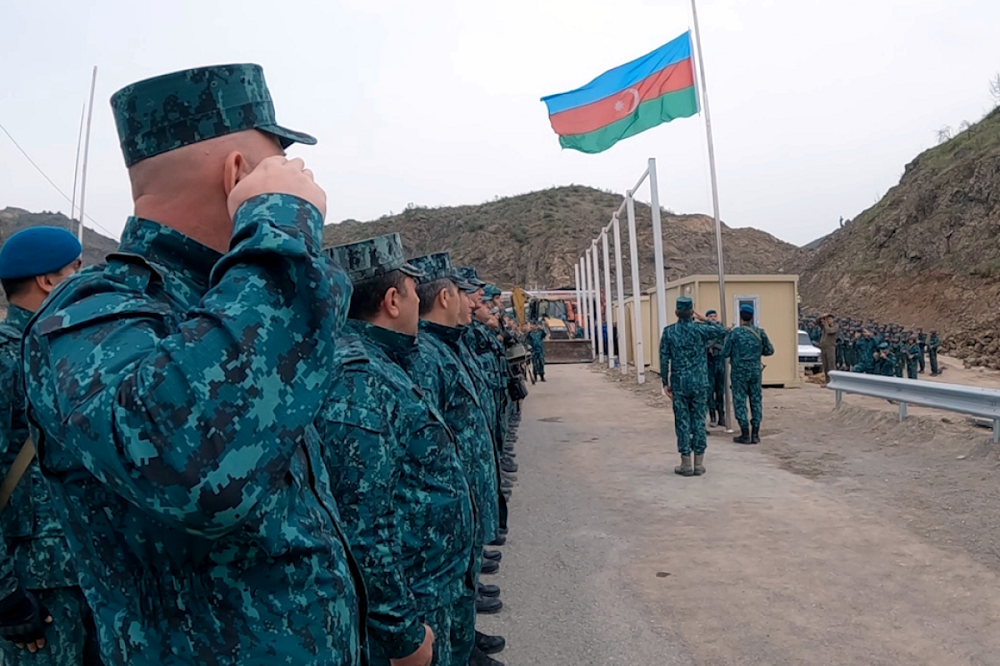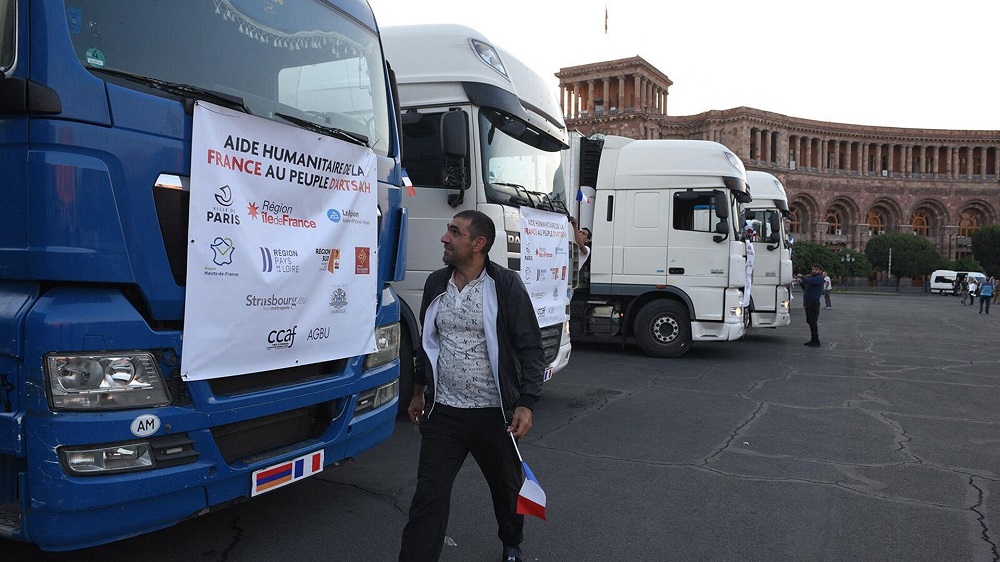Anniversary of Lachin corridor checkpoint: Insights from Baku
Lachin corridor checkpoint
Today, April 23, marks one year since Azerbaijan established a border post in the Lachin district, thereby asserting sovereignty over the entire perimeter of the state border for the first time in all the years of the Karabakh conflict. According to Azerbaijani political commentator Haji Namazov, this day has become one of the most significant in the history of the conflict.
- Perspective from Baku: demarcating the Azerbaijan-Armenian border and the return of four villages
- Is Armenia making unilateral concessions? Yerevan and Baku agree on border delimitation
- “Georgia becomes Putin’s personal cash box” – Experts on offshore law and the ongoing protests
On the anniversary of the establishment of the checkpoint on the Lachin corridor, the Azerbaijani edition JAMnews approached political commentator Haji Namazov to comment on the events leading up to this day in 2023 and the consequences of this step.
Expert Opinion
“The active actions from the Azerbaijani side, which eventually led to the full restoration of the country’s sovereignty over Karabakh, began on December 12, 2022, about four months before the establishment of the checkpoint on the border. On this day, activists blocked the Lachin road near the city of Shusha, demanding to stop the illegal export of natural resources to Armenia.
This action, which lasted until the end of April 2023, essentially created a barrier between the part of Karabakh inhabited by Armenian population and the Russian peacekeeping contingent stationed with Armenia. However, the distance from this point to the border with Armenia was considerable, and soon there were reports of Armenians using alternative mountain roads connecting the beginning of the Lachin road to Khankendi.
In April 2023, the Armed Forces of Azerbaijan took control of the dominant heights on the border, thereby predetermining the possibility of establishing control over the beginning of the Lachin road at the river Hakari, where the border between Azerbaijan and Armenia lay. It was here that the checkpoint appeared on April 23.
Initially, residents of nearby Armenian villages in Karabakh were able to travel through the checkpoint to Armenia and back in their cars. This was all covered in Azerbaijani media. But soon the separatist regime in Khankendi prohibited such trips, and only Red Cross vehicles and peacekeeping forces began to pass through the checkpoint in both directions. Essentially, the leadership of the unrecognized Nagorno-Karabakh Republic voluntarily condemned the Armenian population of Karabakh to isolation by not allowing people to use the road connecting the region to Armenia.
From that very day, April 23, 2023, the separatist regime lost any opportunity to strengthen its military power through supplies from Armenia. Despite this, and the acute shortage of food due to the regime’s ban on the movement of people along the Lachin road, all offers of humanitarian aid from the Azerbaijani side via the Aghdam-Khankendi road were blocked.”
Towards the end of this whole saga, the ubiquitous French got involved. A convoy of trucks with humanitarian aid from Armenia stopped near the checkpoint on the Hakari River. At this point, official Baku laid down its condition: humanitarian aid from Armenia could only be delivered to Khankendi with parallel delivery via the road from Agdam. These negotiations dragged on and ultimately led nowhere; the French aid returned to Yerevan, where it came from.
Then came the anti-terrorism operation by the Azerbaijani Armed Forces, the capitulation of the separatist regime, the arrests of its leaders, and the voluntary departure of the Armenian population from Karabakh.
In other words, the establishment of the checkpoint on the Lachin road was the logical outcome of Baku’s actions to prevent the import of weapons and ammunition from Armenia into Karabakh, as well as the export of natural resources from Karabakh to Armenia. The consequence of this move was the complete restoration of Azerbaijan’s sovereignty over its entire rightful territory.
Therefore, April 23, 2023, can be considered one of the most significant days in the process of restoring the sovereign rights of official Baku over the territory of its country, and thus in the entire history of the Karabakh conflict”.




















